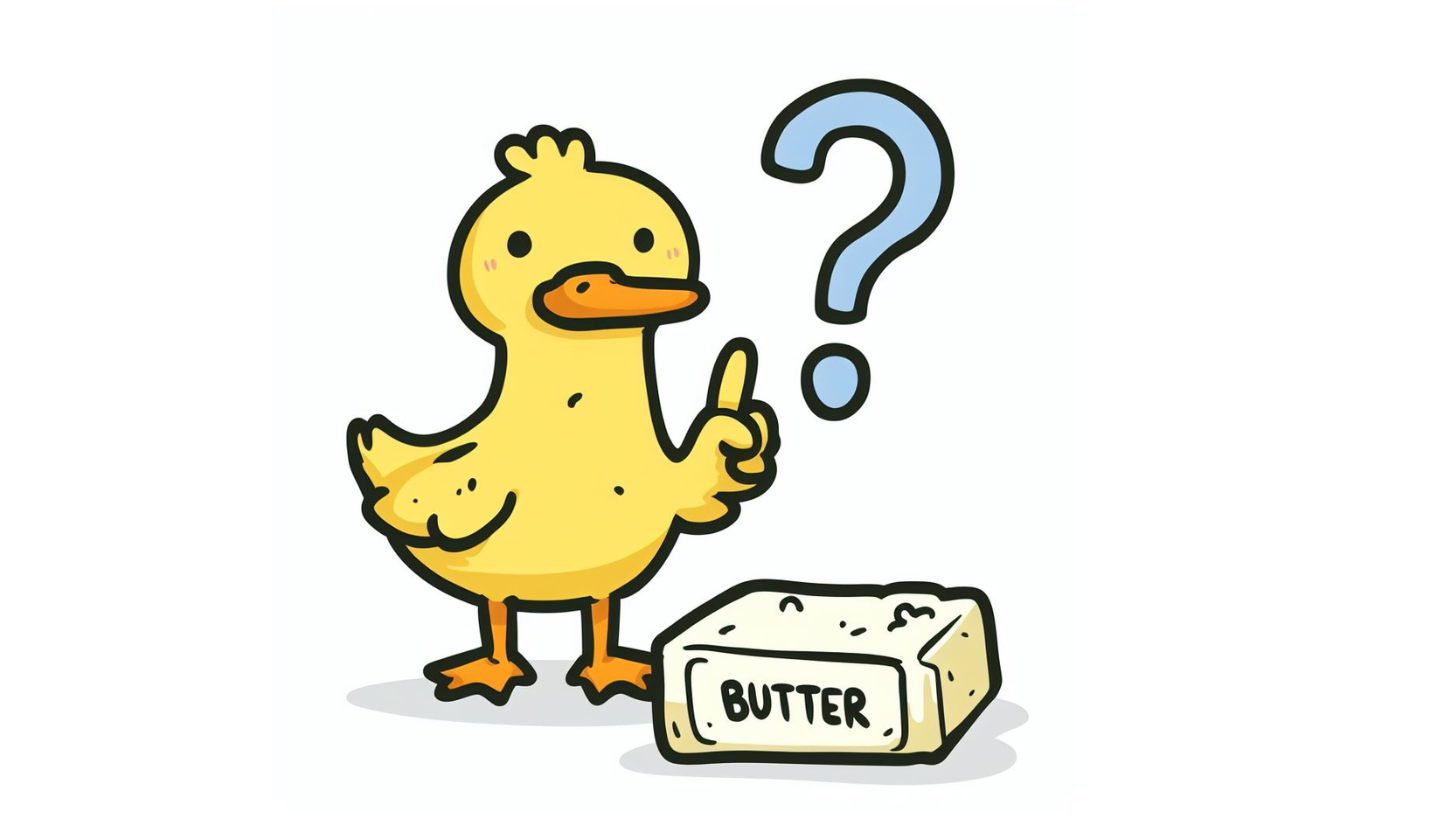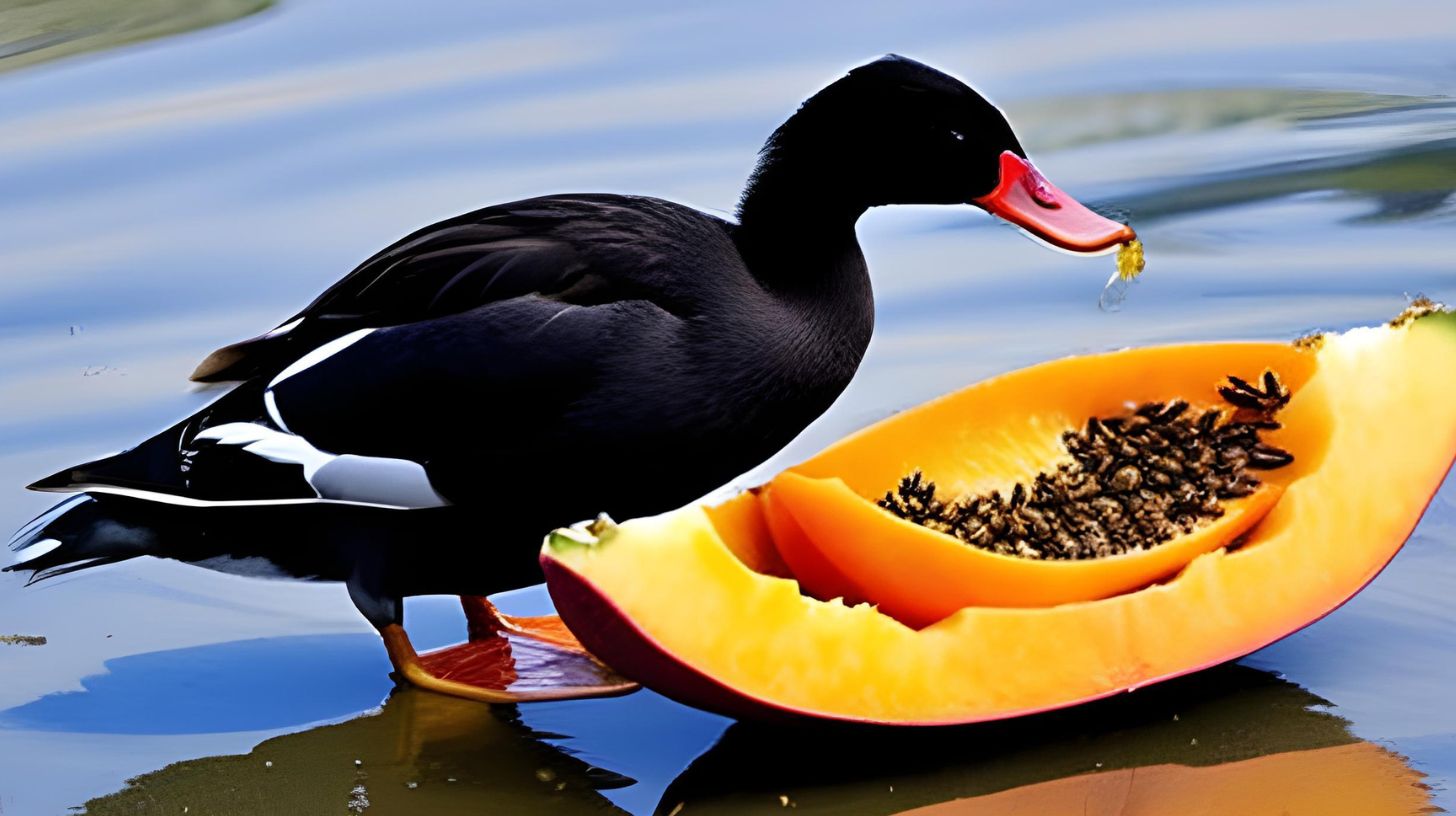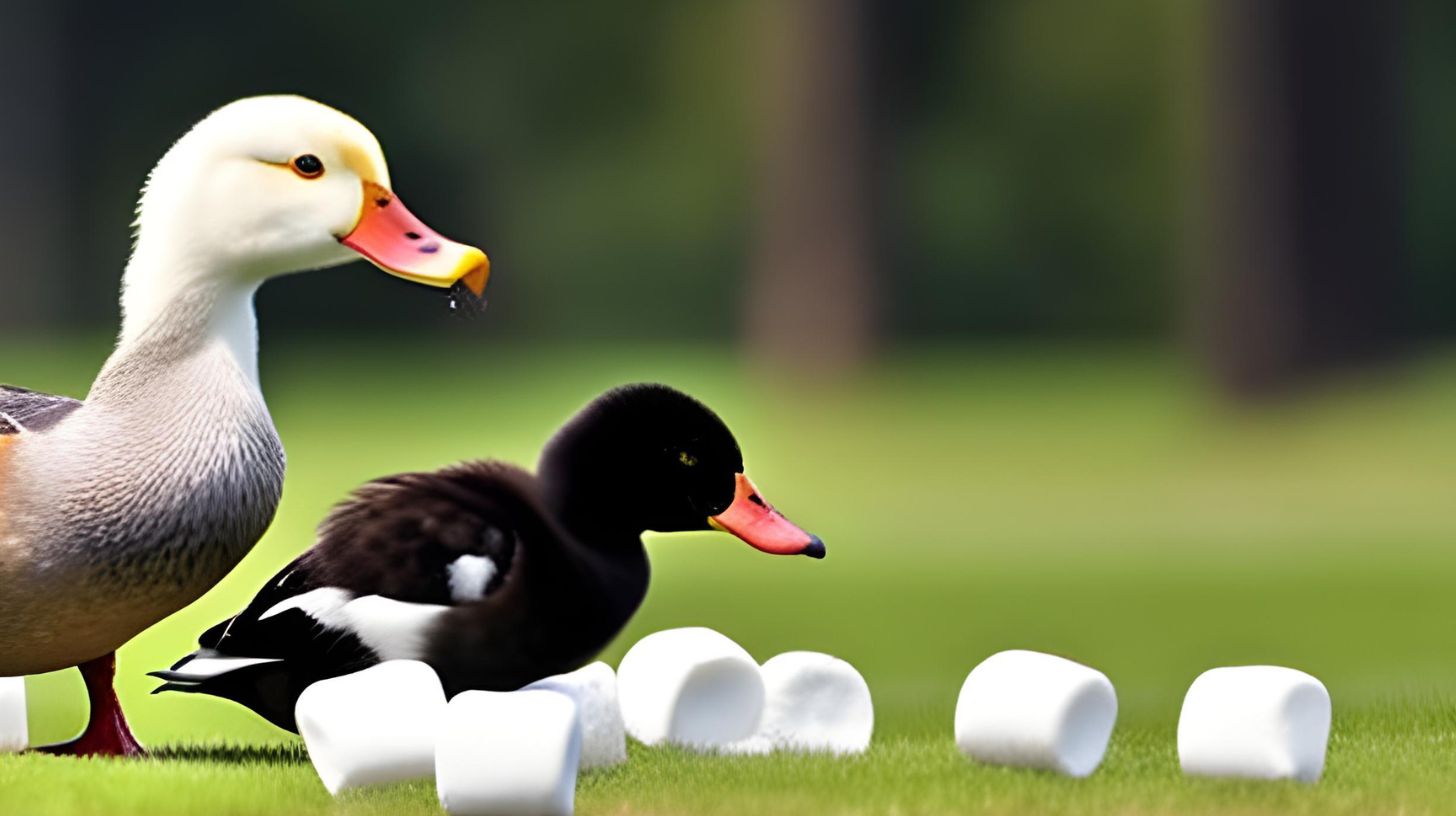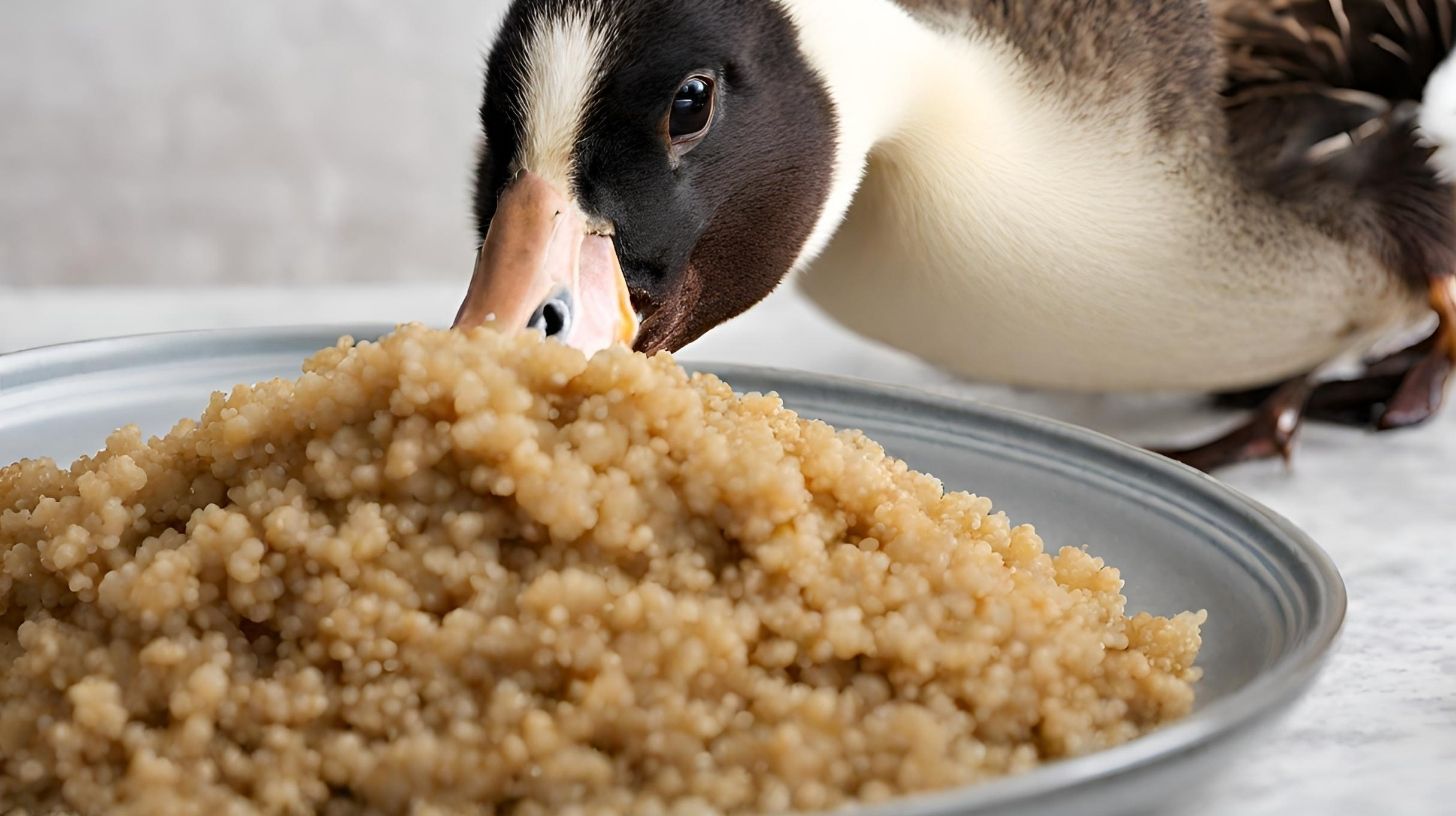Can Ducks Eat Butter? We Have the Answer

Table of content:
Ducks are fun waterfowl to watch as they paddle along the surface of ponds and lakes. With their hearty appetites, you may wonder if domestic ducks can eat common human foods like butter. Understanding what ducks can and cannot digest helps ensure proper care.
Many duck species exist, but the most common domestic duck is the Mallard. Mallards dabble in shallow water to filter edible plants, insects, and aquatic creatures.
Ducks employ a diverse digestive system to process their meals. Their crop stores food. Their gizzard grinds it before passing to the digestive tract. Ducks lack teeth but swallow grit and gravel to aid the gizzard.
Providing proper nutrition helps domestic ducks thrive. But well-meaning duck lovers may offer human foods that cause more harm than good.
Can Ducks Safely Consume Butter?
Butter consists mainly of fat, salt, and milk solids. The high fat content causes problems for ducks. Too much can lead to life-threatening conditions.
Impact on Digestion
A duck’s digestive system is not designed to process concentrated fats. Eating butter may lead to:
- Digestive upset
- Irritated or prolapsing cloaca
- Pancreatitis
- Diarrhea
- Decreased appetite
The rich butter fat can also adhere to a duck’s preen gland near its tail. This gland releases oil to coat feathers for warmth and water resistance. Clogged oil glands prevent ducks from preening properly.
Vitamin Deficiencies
Despite its fat content, butter offers little nutritional value for ducks. Important vitamins and minerals are lacking, including:
- Vitamin E
- Vitamin D3
- Calcium
- Phosphorus
Deficiencies can cause bone demineralization and other serious health issues.
Toxic Exposure
Feeding ducks rancid or moldy butter introduces dangerous toxins. Ducks also lack enzymes to properly digest dairy. Consuming butter may irritate a duck’s intestinal lining and depress its immune system.
Healthier Alternatives to Butter
While ducks cannot properly digest butter, many nutritious alternatives exist. Try offering:
Grains: Whole or cracked corn, barley, oats, wheat berries
Greens: Romaine lettuce, kale, spinach leaves
Vegetables: Squash, sweet potatoes, peas, beans
Fruits: Grapes, berries, melon pieces
Protein: Mealworms, earthworms, crickets
Vary their diet for balanced nutrition. Feed babies 2-3 small meals per day and adults 1-2 larger meals. Always provide fresh water.
Can Wild Ducks Eat Butter?
Wild ducks inhabit ponds, rivers, lakes, and streams while foraging on plants and insects. Human interaction disrupts their natural food sources and habits. As with domestic ducks, wild ducks cannot digest butter properly.
FAQs About Ducks and Butter
New duck owners often have questions about diet. Here are answers to some common queries.
Can I feed ducks salted butter?
No. Salted butter contains even higher sodium levels than regular butter. Too much sodium can harm duck kidneys and impact egg production in hens.
Is clarified butter OK for ducks?
Clarified butter has fewer milk proteins but the same concentrated fat content. It still poses digestion issues and nutrition deficiencies. Avoid feeding any forms of butter or rendered fats.
Can ducks eat buttered toast or rolls?
Also, avoid feeding ducks bread slathered in butter. The combination overloads their system with carbs and fats they cannot properly digest.
Can ducks eat butter-based spreads like margarine?
Do not feed margarine, shortening, or other butter substitutes. Excessive fat causes the same issues as normal butter.
Is butter bad for all birds?
Yes, butter provides no benefits for poultry like ducks, geese, swans, chickens, quail, or turkeys. In the wild, these birds forage on plants, grains, and insects. They cannot properly digest concentrated fats or dairy products.
Signs Your Duck Ate Something Harmful
If a duck accidentally consumes butter or another toxic substance, watch for these symptoms:
- Listlessness or lethargy
- Shaking, tremors, lack of coordination
- Swollen eyes, neck, or body
- Discharge from eyes, nose, or beak
- Diarrhea
- Difficulty breathing
See prompt veterinary care for ducks exhibiting any of these signs. Quick treatment greatly improves recovery odds.
Create a Nutritious Habitat
In addition to offering balanced meals, nurture ducks by providing an inviting habitat:
For domestic ducks:
- Child wading pools for swimming
- Shelter for nesting and shade
- Grass or duckweed to graze
For wild ducks:
- Backyard pond with aquatic plants
- Nearby grasslands for grazing
- Nest boxes and secluded areas
Habitat loss threatens many gorgeous duck species. Support conservation efforts in your community. Protect wetlands crucial to nesting wild ducks.
Enjoy Duck Companionship
Dabbling ducks make delightful additions thanks to their beauty, curiosity, and intelligence. Their splashing fills outdoor spaces with energy and amusement. By understanding proper care, diet, habitat, and more, we nurture healthy waterfowl for all to admire.
When it comes to offering snack foods, resist butter spreads or other dangerous options. Instead, nourish ducks daily with natural foods that fuel their active lifestyle on both land and water. Reward their companionship by simply granting good nutrition, clean water, and a nurturing home.
Conclusion: Avoid Feeding Ducks Butter
In the end, butter provides no health benefits for ducks. The pure fat content poses threats ranging from digestive issues to toxic contamination. Instead, nurture ducks in your care by providing a varied, natural diet. Their ability to seek out nutrients serves them far better than processed human food. Promote their vibrant plumage, stamina, and longevity by simply offering wholesome choices.
Welcome. I’m Adreena Shanum, the proud owner of this website, and I am incredibly passionate about animals, especially poultry. I founded adreenapets.com as a labor of love, stemming from my desire to share my knowledge and experiences with poultry enthusiasts worldwide.




